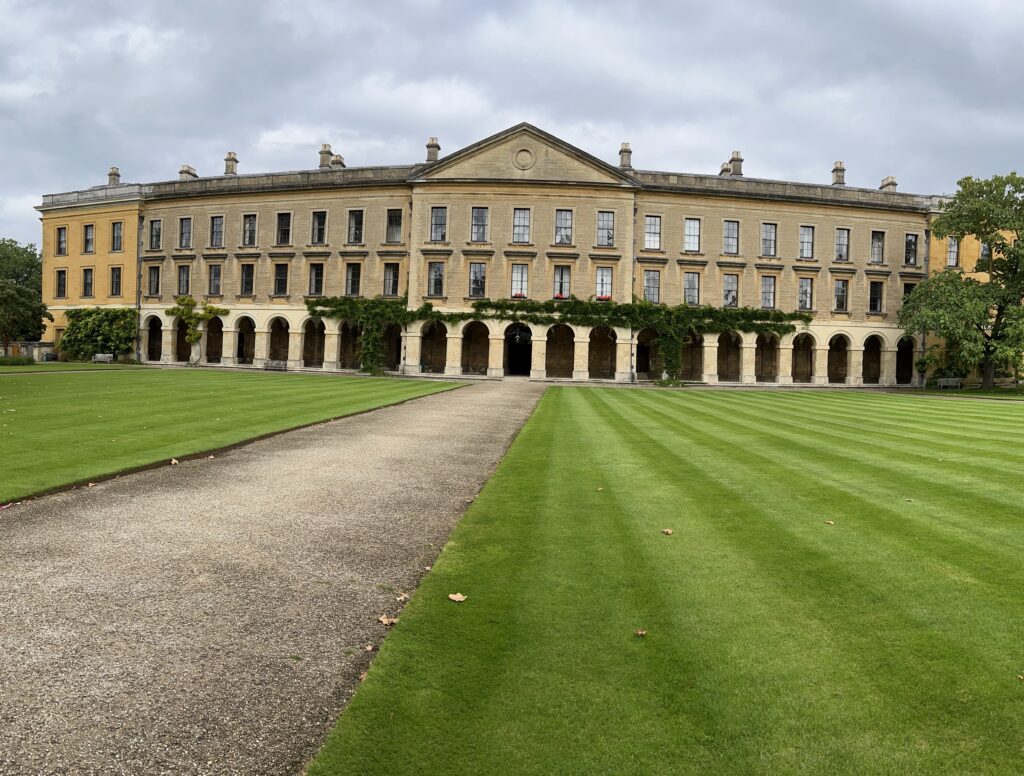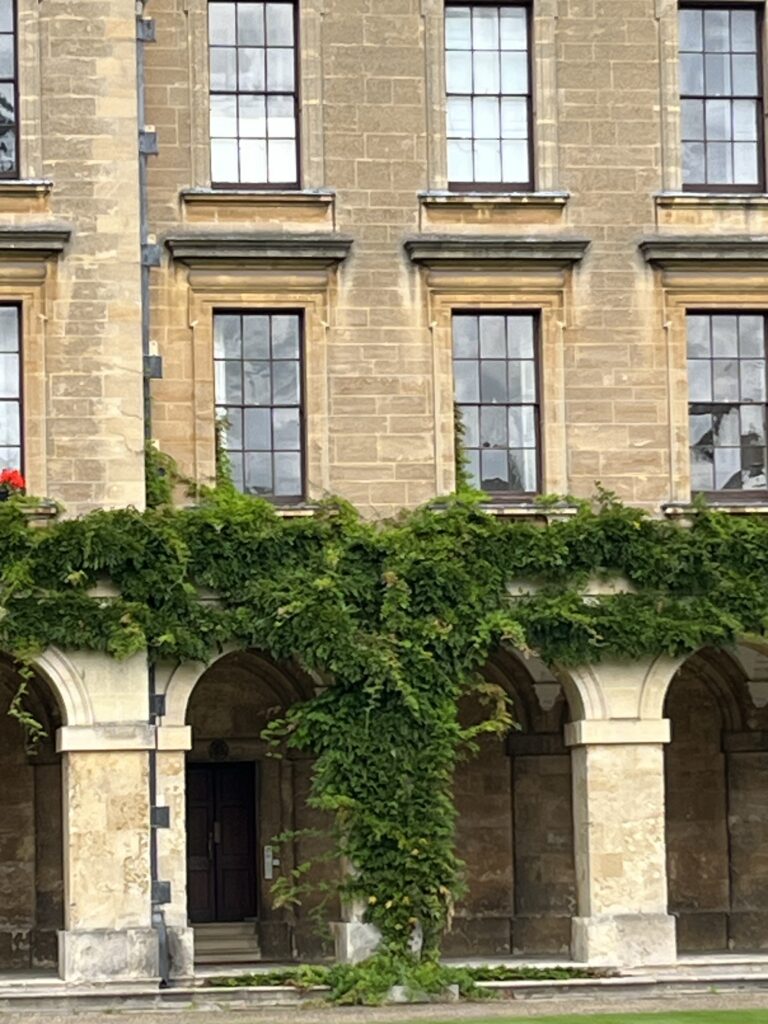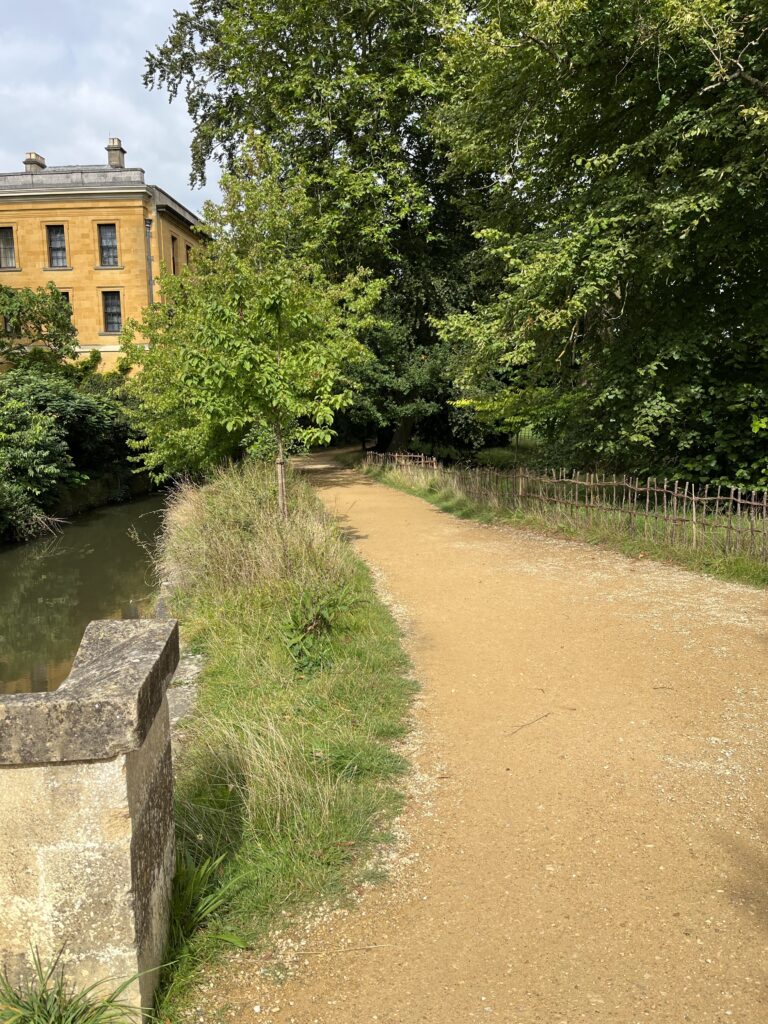
C.S. Lewis spent 29 years in Oxford, and although we had visited Oxford before, we had not fully explored the sites of the life of C.S. Lewis. Today we did.
Thanks to the C.S. Lewis Foundation for publishing a wonderful self-guided C.S. Lewis walking tour of Oxford on its website. It directs you to the places Lewis lived, worked, and worshipped, as well as the place of his conversion, all in a very orderly fashion. You can find the walking tour guide here.
We began at Blackwells, one of the oldest and largest bookstores in the world, which sits between two pubs Lewis often visited with J.R.R. Tolkien and other friends: The White Horse Inn and the Kings Arms. We then followed Holywell Street to the place where Lewis stayed his first night in Oxford.
The best stop on the tour though was Magdalen College, where we saw (from outside) the room in the “New Building” where Lewis converted to theism in 1929, later writing, “I gave in and admitted that God was God, and knelt and prayed: perhaps that night, the most dejected and reluctant convert in all of England.”

As you are facing the New Building, to your right is the River Cherwell. If you walk across the bridge there you find the Addison Walk, a pathway that winds past a field and the Deer Park. Lewis often walked this path with his friends. It was an evening in September 1931 when he walked this path with Tolkien and Hugo Dyson (Oxford academic, author, and member of the Inklings), that Tolkien and Dyson, with the help of the Holy Spirit, led Lewis from theism to Christianity.

Most people have never heard of Hugo Dyson, and those who know of Tolkien, know him as the author of The Lord of the Rings, but in the kingdom of God, what they did in leading C.S. Lewis to the Lord is grander than anything either did in academia or literature.
But here is the thing: Neither one could have possibly realized it at the time because neither could have anticipated the influence Lewis would have and is still having for the kingdom of God. I’m sure each, if questioned would have identified their most important contribution in the world of literature or academia, not a conversation with a young academic on a September evening at Oxford in 1931.
But for many of us, perhaps most, our most important contributions to the kingdom of God will consist of such conversations. Hence, the Apostle Peter’s admonition:
“Always be prepared to give an answer to everyone who asks you to give the reason for the hope that you have.”
I Peter 3:15
Tolkien and Dyson were prepared and did just that with a young C.S. Lewis, and in so doing, they changed England and the world. GS

